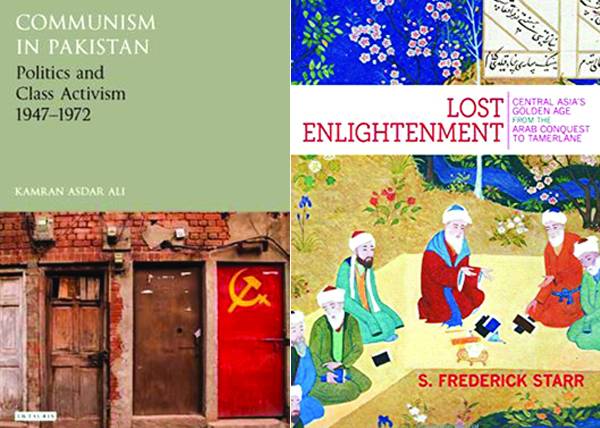
Captives: The Story of Britain’s Pursuit of Empire and How its Soldiers and Civilians Were Held Captive by the Dream of Global Supremacy VINTAGE FINDS
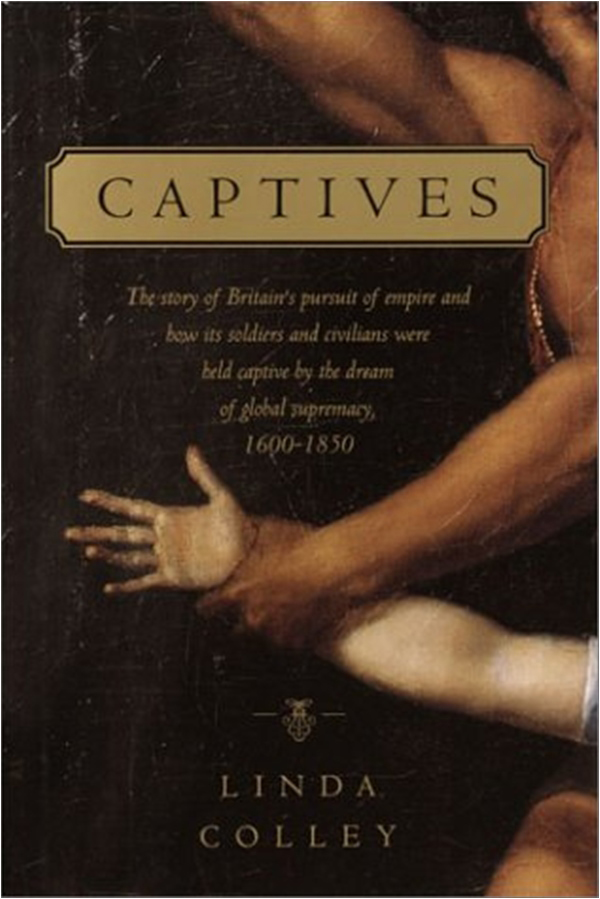
Linda Colley
Pantheon Books [hardback], 2002
PRs 980
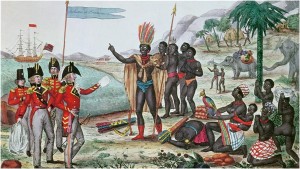 Britain’s pursuit of empire seems an inexorable march across continents toward its ultimate – if temporary – global hegemony. But, as Linda Colley shows in this masterfully written book, Britain’s overseas enterprises were always constrained by its own limitations in size, population, and armed forces, and by divisions among its subjects – constraints and deficiencies that could make the dream of empire an ordeal even for its makers. Drawing on a wealth of captivity narratives by men and women of different social and ethnic backgrounds from the early seventeenth century to the Victorian era, Colley chronicles the complicated dynamic between invader and invaded.
Britain’s pursuit of empire seems an inexorable march across continents toward its ultimate – if temporary – global hegemony. But, as Linda Colley shows in this masterfully written book, Britain’s overseas enterprises were always constrained by its own limitations in size, population, and armed forces, and by divisions among its subjects – constraints and deficiencies that could make the dream of empire an ordeal even for its makers. Drawing on a wealth of captivity narratives by men and women of different social and ethnic backgrounds from the early seventeenth century to the Victorian era, Colley chronicles the complicated dynamic between invader and invaded.
Here are the stories of Sarah Shade, who was married to a succession of British military officers, attacked by tigers, and imprisoned by Indian ruler Tipu Sultan; Joseph Pitts, a white slave in Algiers from 1678 to 1693 and author of the first authentic – and very complimentary – English account of the pilgrimage to Mecca; and Florentia Sale, a captive in the Kabul insurrection of 1841 who used her time in confinement as an opportunity to interview military men for her memoirs. There were also those who crossed the cultural divide and switched identities, like the Irishman George Thomas, a mercenary fighter for Indian rulers and failed dictator, and those who crossed but made it back, like John Rutherfurd, the onetime Chippewa warrior and Scotsman.
Colley uses these extraordinary tales to trace the changing boundaries of Britain’s pursuit of empire and its shifting attitudes toward Islam, slavery, race and American revolutionaries.
What people are saying: “the ‘White Teeth’ version of imperial history” (The Financial Times).
“Captives embodied the costs of empire and the possibility of failure. Many of them came from the lower classes – a reminder of the fact that those who built the imperial edifice were usually not its prime beneficiaries” (The New Yorker).
Communism in Pakistan: Politics and Class Activism 1947–1972
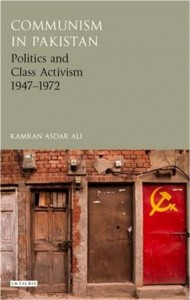
Kamran Asdar Ali
I B Tauris [hardback], 2015
PRs 9,195
Pakistan today stands at a critical juncture in its short history of existence. While much has been written about Pakistan, little is known about Communism or left-leaning politics in the country post-Partition, which played a key role in shaping Pakistani politics today. Kamran Asdar Ali here presents the first extensive look at Pakistan’s communist and working class movement. The author critically engages with the history of Pakistan’s early years while paying special attention to the rise and fall of the Communist Party of Pakistan (CPP), from Partition in 1947 to the aftermath of Bangladeshi independence in 1971.
Since its formation in 1947 as a homeland for South Asian Muslims, Pakistan has been a configuration of shifting alliances and competing political and social ideologies. It has experienced three military takeovers and is plagued with geopolitical conflict – from Kashmir to Baluchistan, Waziristan – and while these aspects of Pakistan make headlines, in order to understand the complexities of these events, it is vital to understand the state’s relationship throughout history with its divergent political and ethnic voices. One dominant feature of the state, along with its emphasis on the Islamic nature of its polity, has been the non-resolution of its ethnic problem. While the history of Pakistan is often viewed through the lens of unified Muslim nationalism, the author here also explores the history of Pakistan’s often tense relationship with its various ethnic groups – Baluch, Pathan, Sindhis, Punjabis and Bengalis.
Shedding light on a vital and little-researched aspect of Pakistani history, this book shows that military coups, Islamic radicalization and terrorist activities do not constitute the sum total of Pakistan’s history; that it, too, has had a history that included the activities of communist intellectuals and activists.
Lost Enlightenment: Central Asia’s Golden Age from the Arab Conquest to Tamerlane
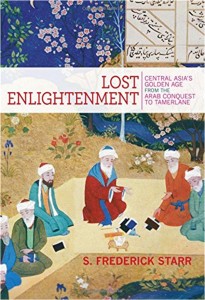
S. Frederick Starr
HarperCollins [paperback], 2007
PRs 1,200
In this sweeping and richly illustrated history, S. Frederick Starr tells the fascinating but largely unknown story of Central Asia’s medieval enlightenment through the eventful lives and astonishing accomplishments of its greatest minds: remarkable figures who built a bridge to the modern world. Because nearly all of these figures wrote in Arabic, they were long assumed to have been Arabs. In fact, they were from Central Asia – drawn from the Persianate and Turkic peoples of a region that today extends from Kazakhstan southward through Afghanistan, and from the easternmost province of Iran through Xinjiang, China.
Lost Enlightenment recounts how, between the years 800 and 1200, Central Asia led the world in trade and economic development, the size and sophistication of its cities, the refinement of its arts, and, above all, in the advancement of knowledge in many fields. Central Asians achieved signal breakthroughs in astronomy, mathematics, geology, medicine, chemistry, music, social science, philosophy, and theology, among other subjects. They gave algebra its name, calculated the earth’s diameter with unprecedented precision, wrote the books that later defined European medicine, and penned some of the world’s greatest poetry. One scholar, working in Afghanistan, even predicted the existence of North and South America – five centuries before Columbus. Rarely in history has a more impressive group of polymaths appeared at one place and time. No wonder that their writings influenced European culture from the time of St Thomas Aquinas down to the scientific revolution, and had a similarly deep impact in India and much of Asia.
Lost Enlightenment chronicles this forgotten age of achievement, seeks to explain its rise, and explores the competing theories about the cause of its eventual demise. Informed by the latest scholarship yet written in a lively and accessible style, this is a book that will surprise general readers and specialists alike.
What people are saying: “In this graceful, luxuriant history, Starr recovers the stunning contributions of Central Asia scientists, architects, artists, engineers, and historians during the four centuries that began just before the Arab onslaught of the eight century and lasted until the Mongol siege in the thirteenth century… The book offers a lucid exploration of the era’s intricate philosophical and theological debates and a succinct depiction of its poetry and art” (Foreign Affairs).

